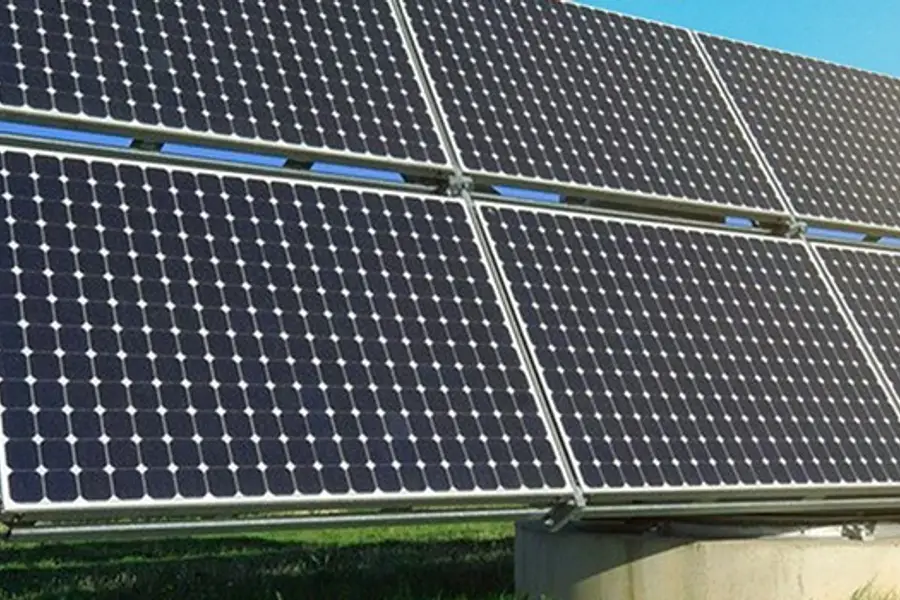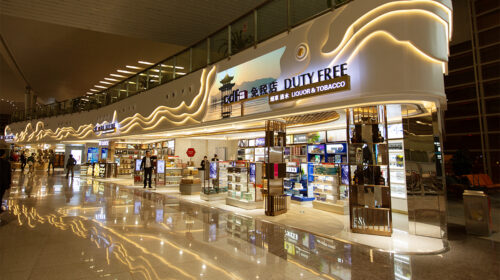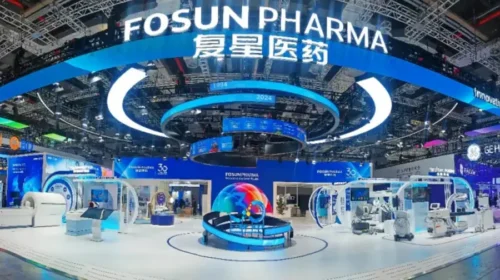Janbon makes contrarian IPO application into solar storm

The maker of a key component for solar cells remained profitable last year, even as many of the industry’s more downstream players sank into the red
Key Takeaways:
- Janbon High Tech has filed to list in Hong Kong, reporting its revenue rose 42% last year
- The provider of silver powder used to make the silver paste for solar cells operates on razor-thin margins and could get dragged into the red as the solar sector remains in crisis
By Doug Young
Hong Kong’s IPO market may be hot right now, as companies from a wide range of sectors raise funds after three years of relatively weak activity. But solar energy companies have been notably absent from the current wave, as the once-hot sector undergoes a painful correction caused by massive oversupply.
Despite such major headwinds, Janbon High Tech Co. Ltd. has filed to list in Hong Kong, trying to tempt investors with its status as a leading maker of silver powder, which is used to make the silver paste that’s a key ingredient of all solar cells. Even in the best of times, Janbon looks like an iffy bet, as it operates on the thinnest of margins due to the highly commoditized nature of its products. And in such turbulent times for its industry, the company could have trouble attracting much interest from investors.
Despite all the turbulence, Janbon has managed to stay profitable over the last three years, at least on an annual basis. But its listing document, filed last Friday, doesn’t break down data on a quarterly basis, and we suspect the company may have followed many of its solar peers into the red towards the end of last year and in the first quarter of 2025.
Two companies reflecting the industry’s recent woes are JinkoSolar (JKS.US; 688223.SH), a leading solar panel maker, and Daqo New Energy (DQ.US; 688303.SH), a top maker of polysilicon that’s another key ingredient used to make those panels. Both companies recently reported sinking into the red not only on a net basis in the first quarter, but also on a gross basis – meaning they were selling their products at below costs.
Reflecting the difficult situation, shares of JinkoSolar and Daqo are down more than 30% so far this year, and both now trade near five-year lows. JinkoSolar’s shares sagged further on Monday after Citi downgraded the stock by two notches from “buy” to “sell,” saying it saw no end in sight to the industry’s woes.
In such a difficult environment, it’s hard to believe that companies like JinkoSolar and Daqo aren’t pressuring their upstream suppliers like Janbon High Tech to lower their prices.
Making matters worse, silver prices have been rising steadily recently, raising Janbon’s own production costs and eroding its margins. Janbon said the price of silver nitrate, which accounts for nearly all of its production costs, rose from 3,100 yuan ($426) per kilogram in 2020 to 4,000 yuan per kilogram last year, with prices expected to keep rising to 5,400 per kilogram by 2029.
Falling margins
One thing Janbon has going in its favor is its relatively long history, which has helped it to secure nearly 10% of China’s PV silver powder market, making it the largest domestic supplier. Its history dates back to 2010 with the establishment of Janbon Colloidal Materials, which was set up in Jinan, capital of East China’s Shandong province, to specialize in the production of new energy and advanced materials that were in their formative stages at that time.
The company began doing R&D for silver powder as early as 2012. It constructed one of the country’s first silver powder production lines in 2014, though it didn’t begin industrial-scale production until five years later in 2019. In late 2023, it became one of China’s first companies capable of producing the high-grade silver powder needed for a new generation of solar products with names like PERC, TOPCon, HJT and xBC cells.
As the industry boomed, so did Janbon’s business. Its revenue jumped 58% in 2023 to 2.78 billion yuan, and then climbed another 42% last year to 3.95 billion yuan, according to the listing document. As we’ve already noted, the silver nitrate that is the company’s main material cost accounted for 96.7% of its revenue last year, up slightly from 96.1% in 2023.
Luckily for Janbon, the company doesn’t require a lot of other spending to run its business, largely because it makes such a specialized product with a limited number of customers and relatively little competition. Its sales and marketing and R&D spending have been relatively stable over the last three years, though its administrative costs nearly doubled last year.
Still, such administrative costs were quite small, even after doubling, equal to just 0.4% of its revenue last year. Reflecting that, the company’s headcount totaled just 93 at the end of last year, unchanged from a year earlier and up not much from 84 people in 2022.
The company’s high costs for silver nitrate kept its gross margin quite low, at just 3.4% last year, down from 3.9% in 2023. It managed to stay profitable in each of the last three years, though the size of that profit was quite miniscule at just 79 million yuan last year. Perhaps the only thing that was even smaller was Janbon’s cash, which totaled just 29.4 million yuan at the end of 2024, though that was actually nearly triple the 10.8 million yuan it had a year earlier.
To say that Janbon is a company living on the edge is quite an understatement, and new funds from the IPO would probably provide it with some much-needed breathing room as its industry comes under nonstop pressure. But again, we can’t see investors getting too excited about giving fresh money to a company caught in the middle of such a major industry shakeup.
One of the company’s global rivals, Dowa Holdings (5714.T), trades at a current price-to-earnings (P/E) ratio of just 10. One of Janbon’s top customers, Changzhou Fusion New Material Co. (688503.SH), trades a bit higher at 18. Something in between those would value Janbon at around $150 million, based on last year’s profit.
That means the company could raise around $30 million from the listing, which would provide some much-needed cash. We honestly can’t see investors getting too excited about this kind of listing, though perhaps it will attract some buyers with longer-term perspective who can look past the current downturn to a future when some shine should return to the sector.
To subscribe to Bamboo Works weekly free newsletter, click here





